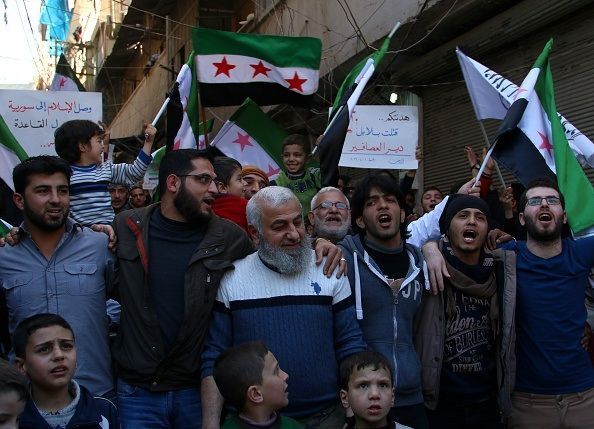US Weighs Sending More Special Forces Troops To Syria

The U.S. administration is considering a plan to greatly increase the number of American special operations forces deployed to Syria as it looks to accelerate recent gains against the Islamic State group, U.S. officials told Reuters.
The officials, with direct knowledge of the proposal's details, declined to disclose the exact increase under consideration. But one of them said it would leave the U.S. special operations contingent many times larger than the around 50 troops currently in Syria, where they operate largely as advisors away from the front lines.
The proposal is among the military options being prepared for President Barack Obama, who is also weighing an increase in the number of American troops in Iraq. A White House spokeswoman declined comment.
The proposal appears to be the latest sign of growing confidence in the ability of U.S.-backed forces inside Syria and Iraq to claw back territory from the hardline Sunni Islamist group.
Islamic State, also known as ISIS or ISIL, controls the cities of Mosul in Iraq and Raqqa in Syria and is proving a potent threat abroad, claiming credit for major attacks in Paris in November and Brussels in March.
But there are mounting indications that the momentum in Iraq and Syria has shifted against Islamic State.
U.S. officials say the group is losing a battle to forces arrayed against it from many sides in the vast region it controls. In Iraq, the group has been pulling back since December when it lost Ramadi, the capital of the western province of Anbar. In Syria, the jihadist fighters have been pushed out of the strategic city of Palmyra by Russian-backed Syrian government forces.
Since U.S.-backed forces recaptured the strategic Syrian town of al-Shadadi in late February, a growing number of Arab fighters in Syria have offered to join the fight against the group, the U.S. officials said.
U.S. forces have also had increased success in eliminating top ISIS leaders. Air strikes in recent weeks killed a top official called Abd al-Rahman Mustafa al-Qaduli, and an Islamic State commander described as the group's "minister of war" -- Abu Omar al-Shishani, or Omar the Chechen.
The United States announced last December it was deploying a new force of special operations troops to Iraq to conduct raids against Islamic State there and in neighboring Syria. That followed its announcement in October that dozens of U.S. special forces would be deployed in Syria, the first U.S. ground troops to be stationed there.
The additional U.S. forces in Syria would be primarily assigned to establishing sites where they would train Arab tribesmen who have been volunteering to fight ISIS. The tribesmen eventually would be provided weapons, paving the way for offensive against the de facto ISIS capital of Raqqa under U.S. air cover.
The dozens of U.S. special operations forces now in Syria are working closely with a collection of Syrian Arab groups within an alliance that is still dominated by Kurdish forces. The United States has been supplying Arabs in the thousands-strong alliance with ammunition since October.
While the strategy is showing results so far, U.S. officials and Kurdish leaders agree that a predominately Arab force is needed to take Raqqa, a majority Arab city whose residents would consider Kurds as occupiers.
The new push by U.S. special operations forces in Syria would be separate from a revised U.S. military effort under way to train a limited number of Syrian fighters in Turkey. That effort is focused on teaching them to identify targets for U.S.-led coalition air strikes.
© Copyright Thomson Reuters 2024. All rights reserved.





















